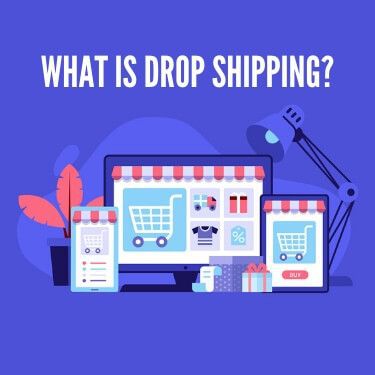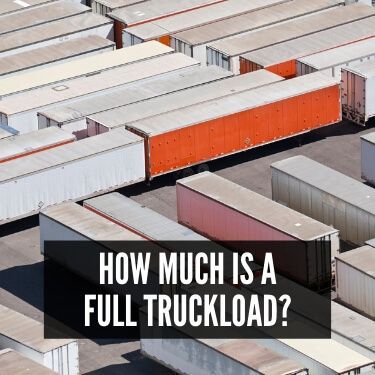If you’ve been looking for the opportunity to start your own business, but have been put off by the potentially high price of retail space, storage, and purchasing costs then it’s time to consider drop shipping. Similarly, manufacturers and suppliers looking to grow the reach of their product can also benefit from utilizing drop shipping.
Put simply, drop shipping refers to a supply chain process in which online retailers sell goods to customers, but don’t directly manage inventory, order fulfillment, or shipping. Instead, customers purchase products through a retailer who then places the order with a supplier or manufacturer. At this point, the supplier/manufacturer fulfills, packs, and ships the order to the customer on behalf of the retailer. Truckload drop shipping refers to shipping a full truckload of goods using the method described above.
Choosing the right path when utilizing drop shipping is important. Our article below provides you with necessary information you need to implement this correctly.

As noted above, drop shipping is an alternative to the traditional retail approach. In the old style of operation, a retailer would purchase products in bulk from a supplier or manufacturer and then sell them to customers. Before the products were purchased by customers, the retailer would be responsible for storing the goods. This model led to high startup costs from having to purchase large quantities of goods, as well as having to secure and pay for storage facilities.
In the fast-moving world of e-commerce, drop shipping has become an extremely popular model of doing business. By shipping orders direct to the customer from the supplier’s warehouse, it enables prospective business owners to easily set up a retail operation with lower risks and much lower overheads than a traditional brick-and-mortar shop based model.
With the new drop shipping model, you simply set up an online channel through your own platform or third-party sites like eBay, Amazon, or Shopify in order to attract customers to your products. From here, customers can place orders that enter into a OMS (Order Management System). Most order management systems automatically trigger the order to then be sent directly to your supplier/manufacturer, who then process, packs, and ships the order to the customer. You are then responsible for following up with any customer service issues and communicating between the supplier and the customer.
The process is easy to understand when broken down into steps like this:
There are lots of benefits of this approach for retailers, particularly if you haven’t been in business before. First, the much lower requirement of capital removes a significant barrier to entry for those who have wanted to set up a store but not been able to spare the funds previously. Second, part of the value you add is in your selection of products. You look at the whole of the market for the best products and deals, and put together the offer in your shop according to demand and what you know will sell well. This method means you can offer a broad range of products to the market. It's also easier to stay profitable when you don’t have to maintain a huge lot of standing inventory. Any traditional retailer will tell you that when stock isn’t moving, it's costing money. With this approach, you don’t need to be sitting on a warehouse full of stock worrying about how long it will take to move and the associated costs of storing it. It’s a convenient, practical way of getting into retailing which doesn’t require huge amounts of upfront capital.
There are several different methods of shipping that you may need to become familiar with. One of the first things you may encounter is a partial truckload. This is a mode of freight shipping used for shipments which may not need the use of a full trailer. You may also see this referred to as LTL shipping, which stands for Less Than Truckload. This refers to a shipment of products which don’t use the entire space of a truck’s capacity - the term FTL is used for a full truck load. Partial truckloads may be slightly more than LTL, and usually involve shipments of either six or more pallets or over five thousands pounds weight. Partial truckload shipments generally benefit from less handling and faster transit times. And you can benefit from less charges along the way, such as minimum density fees and re-classing - partial truckload carriers very rarely stop at distribution terminals on the way, meaning a faster destination time and less handling. Under these conditions, you could benefit from partial truckload shipping

Full truckload shipping is sometimes needed if you have enough cargo to fill a trailer, when it becomes a cost-effective way to move goods through the supply chain. Your products would have to total above five thousand pounds. Where goods need climate control, special shipping conditions, bulk shipment or flatbeds, it can also work well. The cost of this depends on many factors, including:
A good logistics partner will be able to advise on these variables and how to time your shipments to extract the maximum value.
How much a truckload of freight costs is one of many questions that you might have for a freight carrier. For more questions, read our article 15 Questions to Ask Freight Carriers.
Many small businesses start with the entirety of the business being run out of a house or small office. This includes the entire business operation from manufacturing to order fulfillment. Early on, this is manageable while order volumes and production are low. However, as businesses grow, it becomes difficult to contain all of the tasks within a home or small office.
When space is limiting growth or you no longer have time to efficiently manage all business tasks, drop shipping should be explored. Keeping up with order fulfillment is often the first aspect of a growing business that stunts growth. If this is the case for your business, drop shipping can solve this problem. Letting a third party take care of the fulfillment and shipping aspects of business can free up significant time and resources. This in turn allows you to focus on other important aspects of business to support growth.
A great shipping partner is absolutely essential in order for your operations to run smoothly. Partnering with a company that is experienced in truckload drop shipping like R+L Global Logistics makes perfect sense. We work with businesses in all industries and can efficiently manage all of your drop shipping needs. Our additional 3PL services including warehousing, order fulfillment, customs brokerage, and more make us the top choice as a drop shipping partner.
If you have questions or you’re ready to receive a freight shipping quote, give us a call at (866) 353-7178 or click “Freight Quote” below. Our team of transportation and logistics specialists are ready to assist you.
R+L Global Logistics
315 NE 14th St., Ocala, FL 34470